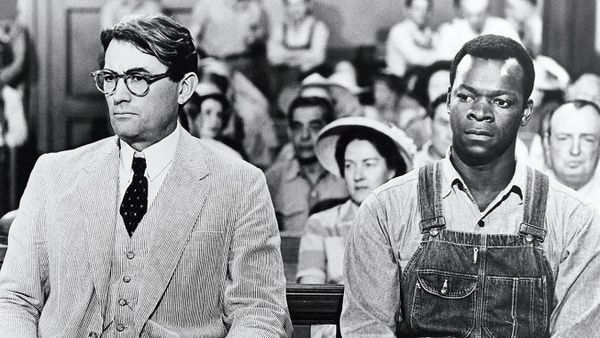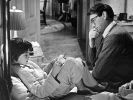Eye For Film >> Movies >> To Kill A Mockingbird (1962) DVD Review
To Kill A Mockingbird
Reviewed by: Angus Wolfe Murray
Read Angus Wolfe Murray's film review of To Kill A Mockingbird
There isn't such a thing as the perfect DVD package. This comes so close you can say it's almost perfect, which is like saying the Statue of Liberty is almost a woman.
It starts slow with Gregory Peck receiving the Best Actor Oscar for his performance as Atticus Finch. He accepts the statuette from a delighted Sophia Loren, thanks all the right people without referring to notes and walks slowly back to his seat. I write in my notebook: "v dignified."

This is followed by another Hollywood ceremony, the American Film Institute's Life Achievement Award dinner. Jimmy Stewart is there, with Anthony Quinn and Charlton Heston and Jane Fonda (blooming) and what is known in PR jargon as "a host of stars." Peck gives a wonderful speech. He's older, white haired now, but still as erudite and charming as ever and you begin to understand why he's so good at this kind of thing. It's the Irish. "My father was a storyteller," he explains. His father was a chemist.
By this time, the DVD is warming. Already you are calling him Greg and feeling a little guilty that you never saw MacArther, or Duel In The Sun. Next is even better. His daughter Cecelia, who looks so attractive you cannot believe she is not a star herself, is speaking to an auditorium of friends and admirers at an Academy tribute memorial do. She's talking about her dad with affection, even love, but never sentimentality. It is an extraordinary and quite beautiful speech. As a father, "he was not lenient, but always fair." He showed up. Whenever any of five children did anything at school, or later, he was there. When she went to a boarding school in her teens, he would write 20 page letters. "He really was a lot like Atticus Finch," she says, with a smile.
This generosity of spirit is reinforced in Scout Remembers, in which a grown up Mary Badham is interviewed for NBC TV about her experience making the film. "I had never done any theatre, or anything," she says. "My father was so against it." After flying to New York for the screen test and getting the part, she found that Peck was so accessible and infinitely helpful to her. "There was such a comfortable, warm atmosphere on the set." They remained friends all his life, which seems to be a trait with him, caring for people and keeping in touch. "He was my grounding," Mary says. "He made me feel so secure." There is a still photograph of Peck sitting on his named chair on location, looking thoughtful, with Scout draped across his chest, asleep, like a contented cat.
The big surprise and even bigger treat is A Conversation With Gregory Peck, which turns out to be a feature length documentary, made in 1999, co-produced by Cecelia and directed by Barbara Kopple, roughly centred around a series of evenings in the theatre that he gave all over the country, in which he talks about his life and family and answers questions ("Was Sophia Loren naked in the shower in Arabesque?" Amused pause. "Yes... and no") from the audience. The camera goes backstage, follows him around, goes to Europe, is with Cecelia at the birth of her baby and informally at the table in Paris having lunch with Jacques Chirac, who flirted outrageously with Veronique, Peck's glamorous wife. This film is the complete biodoc, absorbing, intimate, loving, generous of heart and fun. When asked, as a final question at one of his Evenings, "How would you like to be remembered?", he thought long and hard. "I would like to be remembered as a good husband and father," he said. "As a professional, I would like to be thought of as a good storyteller."
When he first came to Hollywood, he met Gary Cooper, who asked, "How many pictures have you made?"
"Two," Peck said.
"What were they like?" Cooper asked.
"One good, one bad."
"Already, you're ahead of the game."
Reviewed on: 27 Nov 2005















